Chicago train attack suspect repeatedly violated curfew, movement restrictions, records show





















































The 28-point plan outlined last week by the US would have delivered peace on Putin’s terms. EU leaders must help Kyiv resist the bullying
There was a grim familiarity to the unveiling of Donald Trump’s latest peace proposals for Ukraine last week. As in August, when the US president invited Vladimir Putin to a summit in Alaska, Kyiv and its European allies were excluded from discussions that ended up echoing Kremlin talking points. Yet again, Mr Trump publicly scolded Volodymyr Zelenskyy for not being more grateful for his ongoing mediation efforts. And as in the summer, Mr Zelenskyy and blindsided European leaders strove to stay polite while scrambling to limit the damage.
The salvage operation appears to have been relatively successful, following Sunday’s meeting in Geneva between the US secretary of state, Marco Rubio, and a Ukrainian delegation. The 28-point plan reportedly drafted by Mr Trump’s envoy, Steve Witkoff, and the Kremlin adviser, Kirill Dmitriev, was in effect a repackaging of Mr Putin’s maximalist demands. A deal premised on the handing over of new territory in the Donbas region to Russia, restrictions on Ukraine’s sovereignty, and drastic limits on the size of its future army, could never be acceptable to Kyiv. Mr Rubio, suggesting a more “refined” framework was now being developed, seemed to at least acknowledge this fundamental difficulty.
Do you have an opinion on the issues raised in this article? If you would like to submit a response of up to 300 words by email to be considered for publication in our letters section, please click here.
Continue reading...
© Photograph: Xinhua/Shutterstock
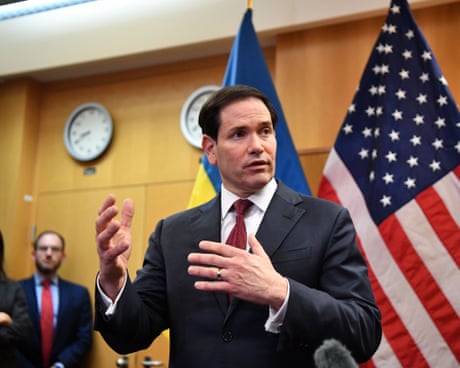
© Photograph: Xinhua/Shutterstock
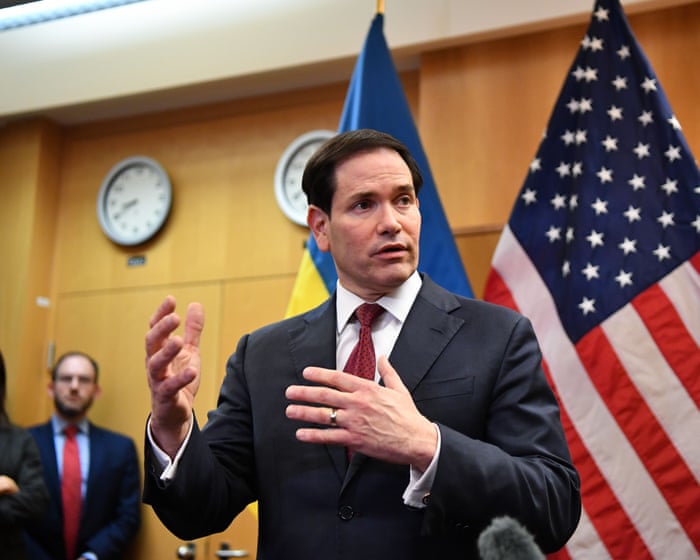
© Photograph: Xinhua/Shutterstock
A fragile Cop30 consensus is a win. But only a real bargain between rich and poor nations can weather the climate shocks that are coming
This year’s UN climate talks in Brazil’s Belém ended without a major breakthrough. The text of the final agreement lacked a deal to shift away from fossil fuels, delayed crucial finance and the “mutirão” decision contained no roadmap to halt and reverse deforestation. But the multilateral system at Cop30 held together at a point when its collapse felt close. This ought to be a warning: next year’s conference of the parties must strike a better bargain between the rich and poor world.
Developing countries are far from united on some issues. Over rare earth minerals China sees any move as targeting its dominance, while Africa sees it as essential for governance. Elsewhere petrostates did not support Colombia’s call for a fossil fuel phase-out. Yet the global south broadly coheres around a simple principle: its nations must be equipped to survive a climate emergency they did not create. That means cash to build flood defences, make agricultural systems resilient, protect coastlines and rebuild after disasters strike. They also demand front-loaded finance to transition to clean, green economic growth.
Do you have an opinion on the issues raised in this article? If you would like to submit a response of up to 300 words by email to be considered for publication in our letters section, please click here.
Continue reading...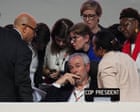
© Photograph: André Penner/AP
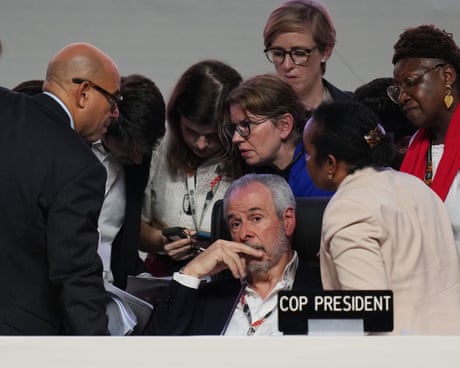
© Photograph: André Penner/AP
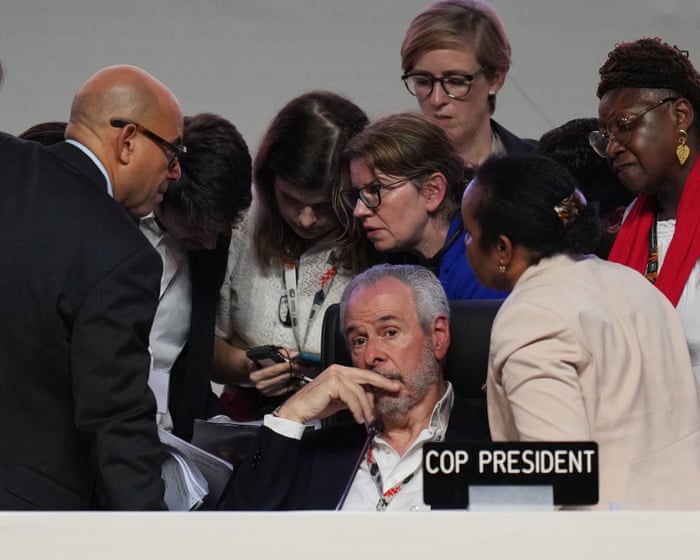
© Photograph: André Penner/AP
As Mumbai sees increased energy demand from new datacenters, particularly from Amazon, the filthiest neighbourhood in one of India’s largest cities must keep its major coal plants
Each day, Kiran Kasbe drives a rickshaw taxi through his home neighbourhood of Mahul on Mumbai’s eastern seafront, down streets lined with stalls selling tomatoes, bottle gourds and aubergines–and, frequently, through thick smog.
Earlier this year, doctors found three tumours in his 54-year-old mother’s brain. It’s not clear exactly what caused her cancer. But people who live near coal plants are much more likely to develop the illness, studies show, and the residents of Mahul live a few hundred metres down the road from one.
Continue reading...
© Photograph: NurPhoto/Getty Images
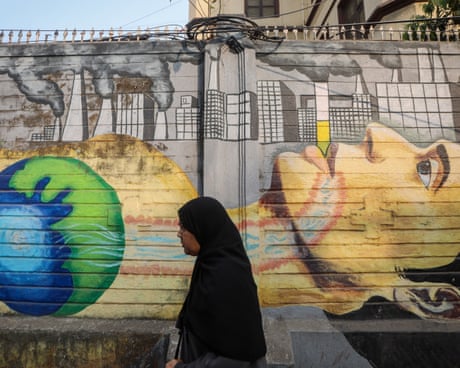
© Photograph: NurPhoto/Getty Images

© Photograph: NurPhoto/Getty Images




























































Four main food distribution sites operated by the opaque company had been flashpoints of deadly violence
A controversial and secretive private company backed by the US and Israel that distributed food in Gaza has announced the end of its operations in the devastated territory.
The Gaza Humanitarian Foundation (GHF), which had four food distribution sites that became flashpoints of chaos and deadly violence between May and October, said in a statement that it would shut down permanently, having “successfully completed its emergency mission”.
Continue reading...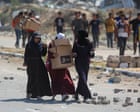
© Photograph: Reuters
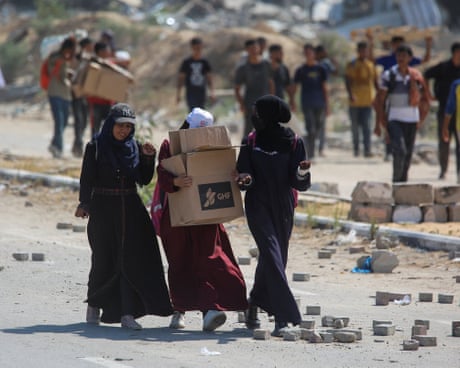
© Photograph: Reuters
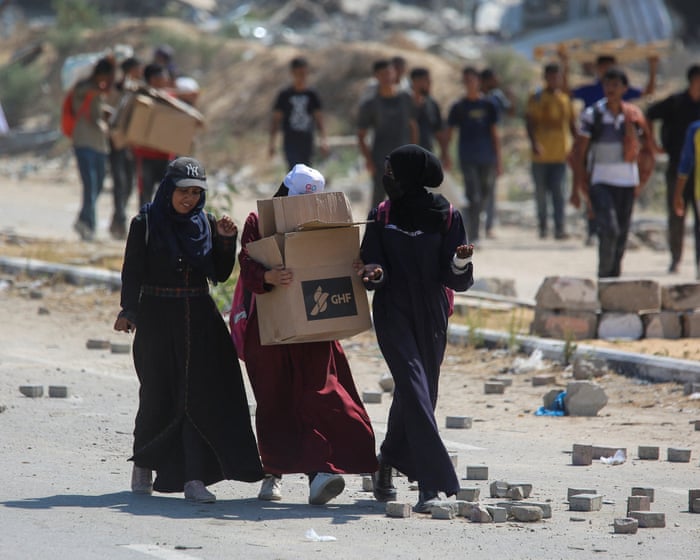
© Photograph: Reuters